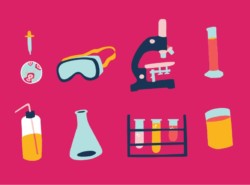
Seeking more genetic information for women at high risk of breast cancer
Published: 10/10/19 12:21 AM

Yanes Tatiane
Genetic testing has come a long way helping to identify women with a high risk of breast cancer due to family inheritance, particularly the BRCA1 and BRCA2 genes.
However, many of the women who attend familial cancer clinics due to a family history of breast cancer, and have a genetic test, receive results that are not informative. That is, no mistakes in those genes are identified to explain their personal and/or family history of breast cancer.
But that doesn’t mean that these women are not at increased risk of developing breast cancer. This study will investigate how best to provide women with information about their polygenic risk of breast cancer.
For women at familial cancer clinics who received uninformative results from standard genetic testing, polygenic information helps categorise them as low, medium or high risk, opening the door to more personalised risk management strategies.
This could also lead to dramatic changes to current population screening for breast cancer, meaning women without a family history of breast cancer could use polygenic testing to personalise their routine mammographic screening.
Finally, findings from this study could also benefit other diseases, such as cardiovascular disease and diabetes, providing a model for similar research across other important fields in medicine.
This is the world’s first study to assess the psychological and behavioural impact of offering women information on their polygenic risk of breast cancer. The results will help ensure polygenic risk testing and counselling are included in clinical practice.
